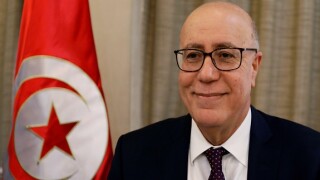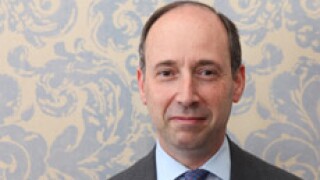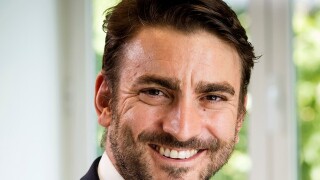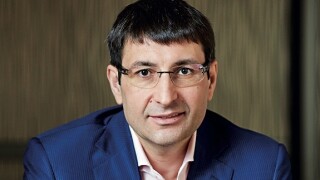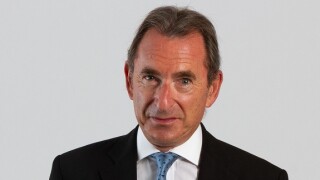The Big Interview
-
Leaving investment banking to join the world of impact investing and environmental NGOs is not something people do lightly. But having made that move a decade ago, Keith Tuffley has been tempted back, to help shape the response of Citigroup’s investment bank to the accelerating rise of sustainability.
-
The Pfandbrief market is in the middle of a tumultuous year which includes not only the adoption of the EU's Covered Bond Directive but also digesting the bloc's Taxonomy for Sustainable Activities. Of course, this is all happening against the backdrop of the coronavirus pandemic and lockdowns, which have hit the commercial real estate market that underpins much of the product. Jens Tolckmitt, chief executive of the Association of German Pfandbriefbanks (vdp), spoke to GlobalCapital about how the market has coped.
-
As its debt-to-GDP ratio inflates and its public finances come under pressure, some have wondered if Tunisia will succumb to a debt restructuring process. But the governor of the Central Bank of Tunisia, Marouane El Abassi, told GlobalCapital that the country is intent on securing new IMF funding as a prerequisite to entering capital markets.
-
Neoen, the French renewable energy company, completed a €600m rights issue at the start of April to help fund it until 2025. Its CFO, Louis-Mathieu Perrin, spoke to GlobalCapital about the deal and explained how green equity stories can still win investors’ attention, despite a recent cooling off in stock valuations.
-
Kenneth Lay, chair of the International Finance Facility for Immunisation (IFFIm), is no stranger to using financial innovation to help tackle some of the world's biggest problems. He spoke to GlobalCapital about the importance of IFFIm as a vehicle to finance the global vaccine rollout in the fight against the coronavirus pandemic.
-
Ukraine is once more at the forefront of emerging market investors' worries as military tensions with Russia escalate. Amid the uncertainty, Ukraine is fighting another uphill battle to access IMF funding in order to recover its economy as soon as possible. The governor of the National Bank of Ukraine, Kyrylo Shevchenko, spoke to GlobalCapital about the challenges the country is facing and the importance of central bank independence.
-
Semrush, the Boston-headquartered marketing software company, listed on the New York Stock Exchange last month during a tricky time for the IPO market. CFO Evgeny Fetisov talks to GlobalCapital about the IPO and the challenges in taking the firm public.
-
Fix Price, the Russian discount retailer, became a public company at the beginning of March in a $1.9bn IPO on the London Stock Exchange. Its CFO Anton Makhnev sat down with GlobalCapital to discuss the deal.
-
One big crisis should be enough for anyone's career. But Sir Robert Stheeman, chief executive of the UK's Debt Management Office, has had to face two monumental financial catastrophes in the last 13 years — first the 2008 UK banking crisis and then last year's pandemic.
-
Pablo de Ramón-Laca is director general of the treasury and financial policy at Spain's Ministry of Economic Affairs and Digital Transformation. That places him in charge of the world's ninth largest sovereign debt stock, according to S&P data, for a country pummelled by the Covid-19 pandemic. Spain has the second highest number of cases in the EU and the seventh highest in the world. But even that is not the full story of the pandemic's impact.
-
Sovcombank, one of Russia’s largest private banks, is making strides in its push to reshape Russia’s financial services marketplace. Dmitry Gusev, its chief executive, talks to GlobalCapital about the bank and its plans for 2021, ahead of a possible IPO.
-
Veteran equity analyst and forensic accountant Steve Clapham believes it is stories that drive investment decisions and seldom cold analysis of financial accounts. But he believes it is hard to find a company which isn’t engaged in some level of financial wrongdoing and argues that auditors are blind to it, wilfully or otherwise.


